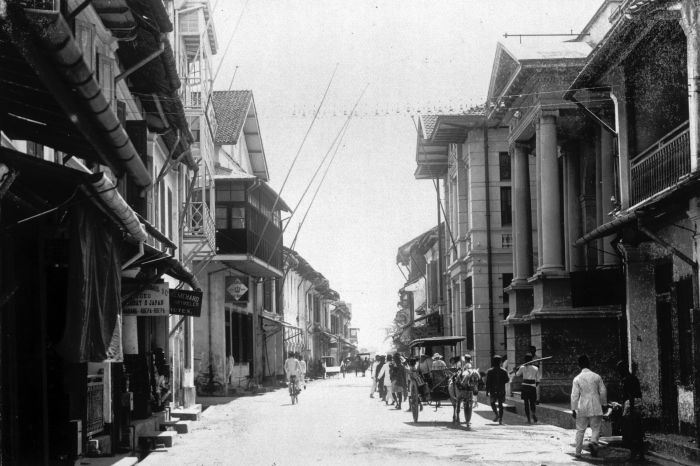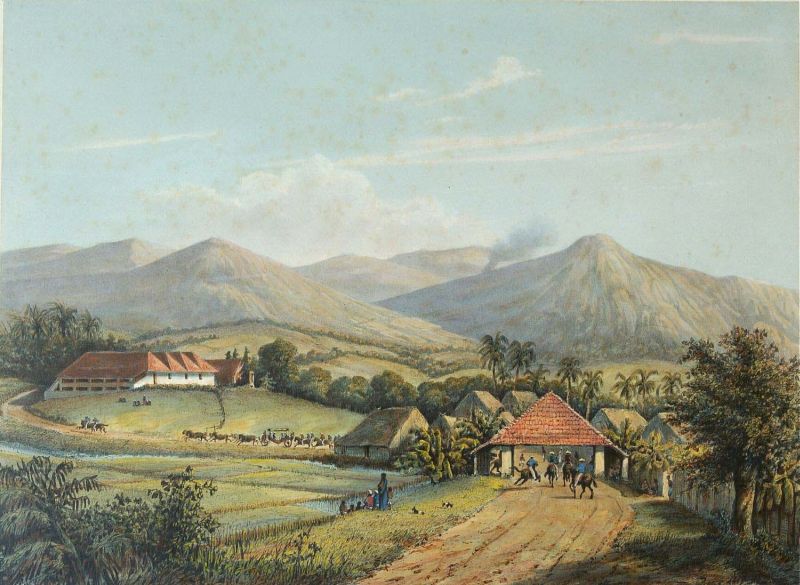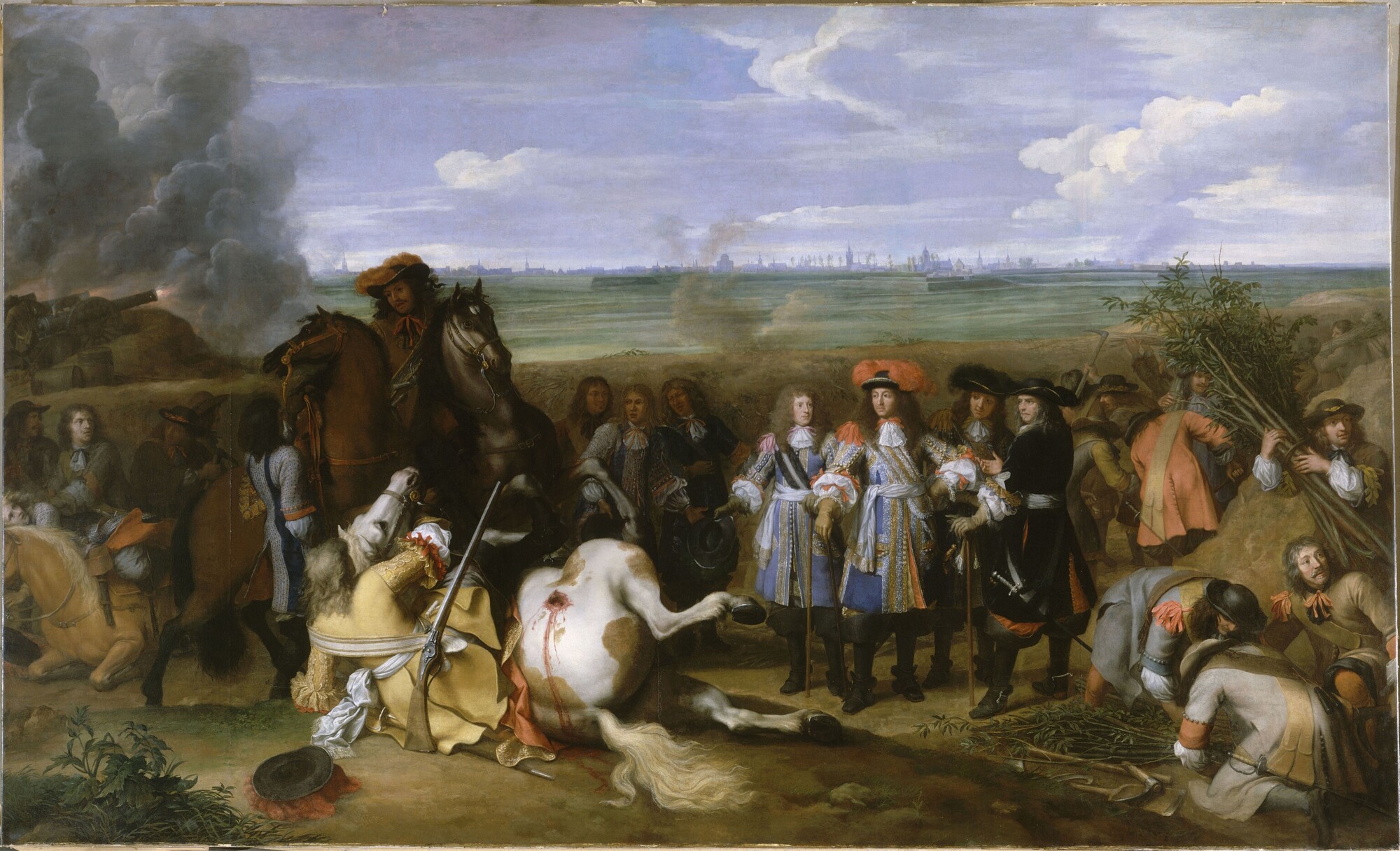|
Treaty Of Bongaya
The Treaty of Bongaya (also spelled Bongaja) was signed on November 18, 1667, between Sultan Hasanuddin of Gowa and the Dutch East India Company (VOC). This treaty was developed after Dutch imperial forces (allied with the Bugis) defeated the Gowan forces at Makassar. Based on the terms of the agreement, Sultan Hasanuddin officially recognized the VOC's influence in Makassar territories (VOC recognition by the sultan was unofficially established in 1667). As a result, major restrictions were placed on Gowa's ability to trade. The treaty declared that all traders from Gowa required a license in order to do business in regions controlled by the Dutch East India Company. These territories included Buton, Makassar, Timor, Bima and the coasts of Java. See also *List of treaties This list of treaties contains known agreements, pacts, peaces, and major contracts between states, armies, governments, and tribal groups. Before 1200 CE 1200–1299 1300–1399 1400–1499 15 ... [...More Info...] [...Related Items...] OR: [Wikipedia] [Google] [Baidu] |
Sultan Hasanuddin
Sultan Hasanuddin (Sultan Hasanuddin Tumenanga Ri Balla Pangkana; (12 January 1631 – 12 June 1670) was the 16th Ruler of The Sultanate of Gowa as Sombaya Ri Gowa XVI from 1653 to 1669. He was proclaimed as Indonesian National Hero on 6 November 1973.PERANGINANGIN, Marlon dkk; ''Buku Pintar Pahlawan Nasional''. Batam: Scientific Press, 2007. The Dutch called Sultan Hasanuddin "the Rooster of the East" as he was described as aggressive in battle. Early life Sultan Hasanuddin was born in Makassar, Gowa Kingdom (on what is now part of South Sulawesi) under the name ''I Mallombasi Daeng Mattawang Muhammad Baqir Karaengta Bonto Mangape Sultan Hasanuddin'', as the name of the giving of Qadi Islam Sultanate of Gowa namely Sayyid Syaikh Jalaludin bin Ahmad Bafaqih Al-Aidid, a mursyid of Baharunnur Baalwy in South Sulawesi as well as teacher tarekat of Sheikh Yusuf and Sultan Hasanuddin. He was the second prince of the 15th King of Gowa, Sultan Malikussaid who died on 15 November 1 ... [...More Info...] [...Related Items...] OR: [Wikipedia] [Google] [Baidu] |
Sultanate Of Gowa
The Sultanate of Gowa was one of the great kingdoms in the history of Indonesia and the most successful kingdom in the South Sulawesi region. People of this kingdom come from the Makassar tribe who lived in the south end and the west coast of southern Sulawesi. History Before the establishment of the kingdom, the region had been known as ''Makassar'' and its people as '' Makassarese''. The history of the kingdom can be divided into two eras: pre-Islamic kingdom and post-Islamic sultanate. Early history The epic poem the ''Nagarakretagama'', in praise of King Rajasanagara of Majapahit, lists Makassar as one of the kingdom's tributaries in 1365. The first queen of Gowa was ''Tomanurung Baine''. Not much is known about the exact time when the kingdom was established nor about the first queen, and only during the reign of the 6th king, ''Tonatangka Kopi'', have local sources noted about the division of the kingdom into two new kingdoms led by two Kopi's sons: Kingdom of Gowa l ... [...More Info...] [...Related Items...] OR: [Wikipedia] [Google] [Baidu] |
Dutch East India Company (VOC)
The United East India Company ( ; VOC ), commonly known as the Dutch East India Company, was a chartered trading company and one of the first joint-stock companies in the world. Established on 20 March 1602 by the States General of the Netherlands amalgamating existing companies, it was granted a 21-year monopoly to carry out trade activities in Asia. Shares in the company could be purchased by any citizen of the Dutch Republic and subsequently bought and sold in open-air secondary markets (one of which became the Amsterdam Stock Exchange). The company possessed quasi-governmental powers, including the ability to wage war, imprison and execute convicts, negotiate treaties, strike its own coins, and establish colonies. Also, because it traded across multiple colonies and countries from both the East and the West, the VOC is sometimes considered to have been the world's first multinational corporation. Statistically, the VOC eclipsed all of its rivals in the Asian trade. B ... [...More Info...] [...Related Items...] OR: [Wikipedia] [Google] [Baidu] |
Bugis
The Bugis people, also known as Buginese, are an Austronesian ethnic groupthe most numerous of the three major linguistic and ethnic groups of South Sulawesi (the others being Makassarese and Torajan), in the south-western province of Sulawesi, third-largest island of Indonesia. The Bugis in 1605 converted to Islam from Animism. Although the majority of Bugis are Muslim, a small minority adhere to Christianity as well as a pre-Islamic indigenous belief called ''Tolotang''. The Bugis, whose population numbers around six million and constitutes less than 2.5% of the Indonesian population, are influential in the politics in the country; and historically influential on the Malay Peninsula, Sumatra, Borneo, Lesser Sunda Islands and other parts of the archipelago where they have migrated en masse, starting in the late seventeenth century. The third president of Indonesia, B. J. Habibie, and a former vice president of Indonesia, Jusuf Kalla, are Bugis descent. In Malaysia, the ... [...More Info...] [...Related Items...] OR: [Wikipedia] [Google] [Baidu] |
Makassar
Makassar ( ), formerly Ujung Pandang ( ), is the capital of the Indonesian Provinces of Indonesia, province of South Sulawesi. It is the largest city in the region of Eastern Indonesia and the country's fifth-largest urban center after Jakarta, Surabaya, Medan, and Bandung.Ministry of Internal AffairsRegistration Book for Area Code and Data of 2013 The city is located on the southwest coast of the island of Sulawesi, facing the Makassar Strait. Throughout its history, Makassar has been an important trading port, hosting the center of the Gowa Sultanate and a Portuguese naval base before its conquest by the Dutch East India Company in the 17th century. It remained an important port in the Dutch East Indies, serving Eastern Indonesian regions with Makassarese fishers going as far south as the Australian coast. For a brief period after Independence of Indonesia, Indonesian independence, Makassar became the capital of the State of East Indonesia, during which an Makassar Uprising, u ... [...More Info...] [...Related Items...] OR: [Wikipedia] [Google] [Baidu] |
Buton
Buton (also Butung, Boeton or Button) is an island in Indonesia located off the southeast peninsula of Sulawesi. It covers roughly 4,727 square kilometers in area, or about the size of Madura; it is the 129th List of islands by area, largest island in the world and Indonesia's 19th largest in area. History In the precolonial era, the island, then usually known as Butung, was within the sphere of influence of Sultanate of Ternate, Ternate. Especially in the sixteenth century, Buton served as an important secondary regional center within the Ternaten empire, controlling regional trade and collecting tribute to be sent to Ternate. The Sultanate of Buton ruled over the island from the 14th until the 20th century. Sultan Murhum, the first Islamic monarch on the island, is remembered in the name of the island's major harbor, Murhum Harbor, in Baubau. Geography Its largest town is Baubau, where the Wolio language, Wolio and Cia-Cia language, Cia-Cia languages are spoken. Major near ... [...More Info...] [...Related Items...] OR: [Wikipedia] [Google] [Baidu] |
Timor
Timor (, , ) is an island at the southern end of Maritime Southeast Asia, in the north of the Timor Sea. The island is Indonesia–Timor-Leste border, divided between the sovereign states of Timor-Leste in the eastern part and Indonesia in the western part. The Indonesian part, known as West Timor, constitutes part of the Provinces of Indonesia, province of East Nusa Tenggara. Within West Timor lies an exclave of Timor-Leste called Oecusse District. The island covers an area of . The name is a variant of ''timur'', Malay language, Malay for "east"; it is so called because it lies at the eastern end of the Lesser Sunda Islands. Mainland Australia is less than 500 km away, separated by the Timor Sea. Language, ethnic groups and religion Anthropologists identify eleven distinct Ethnolinguistic group, ethno-linguistic groups in Timor. The largest are the Atoni of western Timor and the Tetum language, Tetum of central and eastern Timor. Most indigenous Timorese languages ... [...More Info...] [...Related Items...] OR: [Wikipedia] [Google] [Baidu] |
Java
Java is one of the Greater Sunda Islands in Indonesia. It is bordered by the Indian Ocean to the south and the Java Sea (a part of Pacific Ocean) to the north. With a population of 156.9 million people (including Madura) in mid 2024, projected to rise to 158 million at mid 2025, Java is the world's List of islands by population, most populous island, home to approximately 55.7% of the Demographics of Indonesia, Indonesian population (only approximately 44.3% of Indonesian population live outside Java). Indonesia's capital city, Jakarta, is on Java's northwestern coast. Many of the best known events in Indonesian history took place on Java. It was the centre of powerful Hindu-Buddhist empires, the Islamic sultanates, and the core of the colonial Dutch East Indies. Java was also the center of the History of Indonesia, Indonesian struggle for independence during the 1930s and 1940s. Java dominates Indonesia politically, economically and culturally. Four of Indonesia's eig ... [...More Info...] [...Related Items...] OR: [Wikipedia] [Google] [Baidu] |
List Of Treaties
This list of treaties contains known agreements, pacts, peaces, and major contracts between states, armies, governments, and tribal groups. Before 1200 CE 1200–1299 1300–1399 1400–1499 1500–1599 1600–1699 1700–1799 1800–1899 1900–1999 2000–present Pending * Central American Free Trade Agreement * Free Trade Area of the Americas * Substantive Patent Law Treaty (SPLT) * WIPO Protection of Broadcasting Organizations * Anti-Counterfeiting Trade Agreement The Anti-Counterfeiting Trade Agreement (ACTA) is a plurilateral agreement, multilateral treaty for the purpose of establishing international standards for intellectual property rights enforcement that did not enter into force. The agreement ai ... Notes References External links Treaty of Peace with Japan Signed at San Francisco on 8 September 1951Treaty of Peace Between Japan and India (1952) Treaty of Peace Between Japan and the Union of Burma (1954) Agreement Between Japan a ... [...More Info...] [...Related Items...] OR: [Wikipedia] [Google] [Baidu] |
Treaties Of Indonesia
A treaty is a formal, legally binding written agreement between sovereign states and/or international organizations that is governed by international law. A treaty may also be known as an international agreement, protocol, covenant, convention, pact, or exchange of letters, among other terms; however, only documents that are legally binding on the parties are considered treaties under international law. Treaties may be bilateral (between two countries) or multilateral (involving more than two countries). Treaties are among the earliest manifestations of international relations; the first known example is a border agreement between the Sumerian city-states of Lagash and Umma around 3100 BC. International agreements were used in some form by most major civilizations and became increasingly common and more sophisticated during the early modern era. The early 19th century saw developments in diplomacy, foreign policy, and international law reflected by the widespread use of tre ... [...More Info...] [...Related Items...] OR: [Wikipedia] [Google] [Baidu] |
1667 Treaties
Events January–March * January 11 – Aurangzeb, monarch of the Mughal Empire, orders the removal of Rao Karan Singh as Maharaja of the Bikaner State (part of the modern-day Rajasthan state of India) because of Karan's dereliction of duty in battle. * January 19 – The town of Anzonico in Switzerland is destroyed by an avalanche. * January 27 – The 2,000 seat Opernhaus am Taschenberg, a theater in Dresden (capital of the Electorate of Saxony) opens with its first production, Pietro Ziani's opera ''Il teseo''. * February 5 – In the Second Anglo-Dutch War, the English Royal Navy warship HMS ''Saint Patrick'' is captured less than nine months after being launched, when it fights a battle off the coast of England and North Foreland, Kent. Captain Robert Saunders and 8 of his crew are killed while fighting the Dutch ships ''Delft'' and ''Shakerlo''. The Dutch Navy renames the ship the ''Zwanenburg''. * February 6 (January 27 O.S.) – The Tr ... [...More Info...] [...Related Items...] OR: [Wikipedia] [Google] [Baidu] |
Treaties Of The Dutch East India Company
A treaty is a formal, legally binding written agreement between sovereign states and/or international organizations that is governed by international law. A treaty may also be known as an international agreement, protocol, covenant, convention, pact, or exchange of letters, among other terms; however, only documents that are legally binding on the parties are considered treaties under international law. Treaties may be bilateral (between two countries) or multilateral (involving more than two countries). Treaties are among the earliest manifestations of international relations; the first known example is a border agreement between the Sumerian city-states of Lagash and Umma around 3100 BC. International agreements were used in some form by most major civilizations and became increasingly common and more sophisticated during the early modern era. The early 19th century saw developments in diplomacy, foreign policy, and international law reflected by the widespread use of treat ... [...More Info...] [...Related Items...] OR: [Wikipedia] [Google] [Baidu] |







